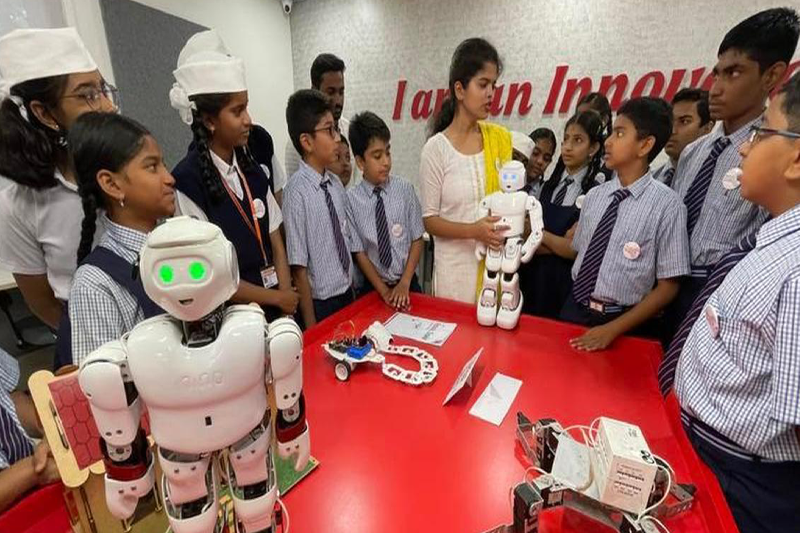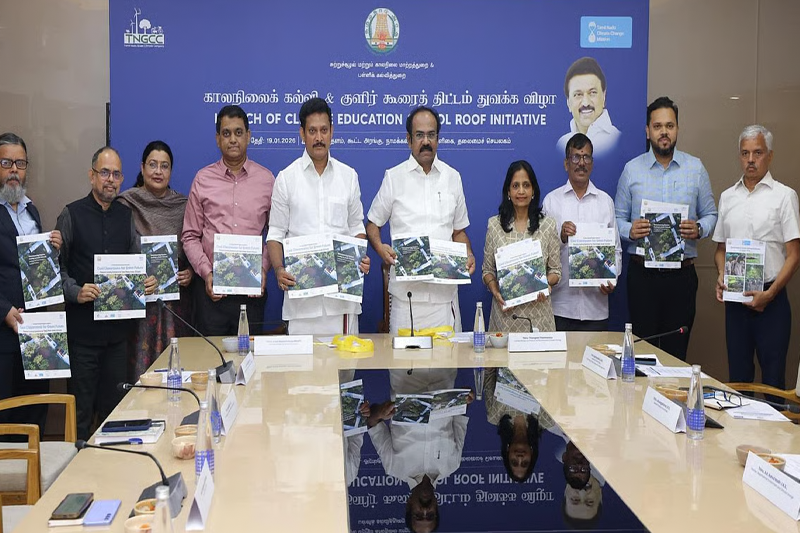
CBSE Launches Global Curriculum for UAE and GCC Schools from April 2026: A New Chapter in International Education
In a landmark announcement, the Central Board of Secondary Education (CBSE) has confirmed that its Global Curriculum will officially launch in April 2026, reshaping the educational landscape for CBSE-affiliated schools in the UAE and other Gulf Cooperation Council (GCC) countries. The announcement was made during the first international and 31st Sahodaya School Complexes Conference, held in Dubai, signifying a major step in CBSE’s mission to evolve into a globally recognized and contextually adaptable education board.
A Historic Milestone in CBSE’s Global Journey
The introduction of the CBSE Global Curriculum marks a defining moment in the board’s 63-year history, reflecting India’s growing educational footprint worldwide. The initiative aligns closely with the principles of the National Education Policy (NEP) 2020, which emphasizes flexibility, internationalization, and holistic development in learning.
The two-day conference, themed “Rooted in Wisdom, Rising with Vision – Reimagining Education through NEP 2020,” brought together over 800 CBSE school leaders and educationists from India and across the Gulf region. The event was inaugurated in Dubai, a city that has long been a hub for Indian expatriate education and international collaboration.
Global Collaboration: Key Discussions and Stakeholders
Senior education regulators from across the GCC attended the conference, including representatives from:
- Dubai’s Knowledge and Human Development Authority (KHDA)
- Abu Dhabi Department of Education and Knowledge (ADEK)
- Sharjah Private Education Authority (SPEA)
- Ministries of Education from Oman, Bahrain, Kuwait, and Qatar
These officials engaged in strategic discussions with CBSE representatives, the Government of India, and the Consul General of India in Dubai to refine the draft of the upcoming Global Curriculum.
The deliberations focused on curriculum contextualisation, teacher training, vocational and technical education, and global recognition of CBSE certificates. Regulators welcomed the initiative, noting its potential to strengthen international educational standards while preserving CBSE’s academic integrity and affordability.
From Vision to Implementation: The Road Ahead
Speaking to Gulf News, Dr. Ram Shankar, Director of the CBSE Regional Office and Centre of Excellence in Dubai, elaborated on the development phase of the curriculum.
“We will have more discussions with stakeholders to finalise the curriculum, and it is likely to be rolled out next academic year,” he stated.
Dr. Shankar, who oversees all CBSE-affiliated foreign schools, clarified that the CBSE Global Curriculum is currently in the draft stage. The framework aims to address the diverse learning needs of international students while maintaining a strong connection with the core values and academic standards of the Indian education system.
Largest CBSE Network Outside India
The UAE holds the distinction of hosting the largest cluster of CBSE schools outside India, with 106 institutions spread across Dubai, Abu Dhabi, Sharjah, and other emirates. These schools cater to tens of thousands of Indian expatriate students, offering a familiar yet internationally benchmarked learning experience.
For these schools, the introduction of the Global Curriculum represents both a strategic opportunity and a transformative shift. It promises to integrate global competencies with localized learning outcomes, ensuring that students remain competitive and well-prepared for international higher education pathways.
Background: The Seeds of a Global Vision
The idea of an international CBSE framework first gained traction in September 2025, when India’s Education Minister Dharmendra Pradhan announced the plan to commission a CBSE International Board during a press conference at the Indian Consulate in Dubai.
At the time, the minister emphasized that the initiative would cater to Indian diaspora communities while promoting India’s educational values on a global scale. He envisioned schools following this curriculum not only in the UAE but also in other parts of the world, from Southeast Asia to Europe.
The recent announcement confirms that this vision is now materializing under the banner of the CBSE Global Curriculum.
Regulators Applaud the Initiative
Education regulators from across the GCC have welcomed the initiative enthusiastically. In a joint statement, they expressed readiness to collaborate on key aspects such as teacher qualification standards, equivalence benchmarks, and curriculum contextualisation.
The regulators also commended CBSE’s commitment to maintaining a balance between academic rigour and affordability, ensuring that Indian expatriate families continue to access quality education at sustainable costs.
Furthermore, they acknowledged the strong compliance, quality, and student performance demonstrated by CBSE schools in the Gulf region, which has earned them a reputation for excellence and discipline.
Aligning with NEP 2020: A Forward-Looking Framework
The Global Curriculum has been designed in line with India’s National Education Policy (NEP) 2020, which emphasizes flexibility, experiential learning, and a multidisciplinary approach. This alignment ensures that CBSE students abroad will experience the same transformative principles shaping India’s domestic education reforms.
The framework aims to integrate:
- Competency-based learning modules
- Global citizenship education
- Vocational and skill-oriented programs
- Digital literacy and AI integration
- Cultural and linguistic inclusivity
By contextualizing the content for local environments while maintaining international benchmarks, the Global Curriculum will empower students to navigate global challenges confidently.
A Vision for the Future of Indian Education Abroad
The move positions CBSE as a global education board, capable of adapting its pedagogy to international standards while preserving its Indian roots. It also reflects the Indian government’s ambition to expand its soft power through education, offering a credible, affordable, and academically rigorous alternative to Western curricula such as the IB and Cambridge systems.
For schools, the initiative promises enhanced teacher training, upgraded teaching resources, and greater institutional recognition. For parents and students, it ensures continuity, flexibility, and global acceptance of CBSE credentials.
Conclusion: CBSE’s Global Leap Forward
The launch of the CBSE Global Curriculum in April 2026 will mark a transformational leap for Indian education overseas. By bridging academic excellence with international adaptability, CBSE reaffirms its position as one of the world’s most dynamic education boards.
With strong support from GCC regulators, Indian diplomatic missions, and the wider school community, the new framework is poised to redefine how CBSE schools operate beyond India — offering students not just education, but a globally attuned learning experience that blends Indian values with international vision.


